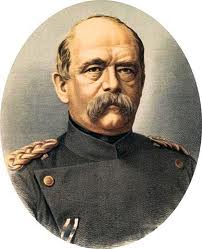Otto Eduard Leopold von Bismarck was born on 1 April 1815 into an aristocratic family in northwest of Berlin. He attended a prestigious school in Berlin followed by the University of Göttingen. He then entered the Prussian civil service but was bored by his job and in 1838 resigned. For nearly a decade, he helped his father manage the family estates.
In 1847, Bismarck married Johanna von Puttkamer, who provided him with stability. It was a year of significant change in his life, when he also embraced the Christian tradition of Lutheranism, and began his political career in the Prussian legislature, where he gained a reputation as an ultra-conservative royalist.
In 1862, he was appointed prime minister of Prussia by the new king, Wilhelm I. This was when Bismarck began nursing the idea uniting the entire German state. With the help of other countries, he succeeded in uniting Germany and he became the chancellor. As ‘chancellor’ of the new Germany, Bismarck concentrated on building a powerful state with a unified national identity.
When he discovered Germany was strong enough within, he diverted his attention to external issues. He wanted to capture as many territories as possible so as to prove how powerful his country was. This was when he began nursing ideas of annexing Cameroon. Following several meetings and negotiations, he succeeded in annexing Cameroon in 1884 there by showing to the world how powerful his country was.
Unfortunately he was not present when the British and the French launched an attack during WW1 to seize Cameroon from Germany. In 1890, Bismarck resigned after disagreeing with the new emperor, Wilhelm II. He retired to his estate near Hamburg and died there on 30 July 1898.
